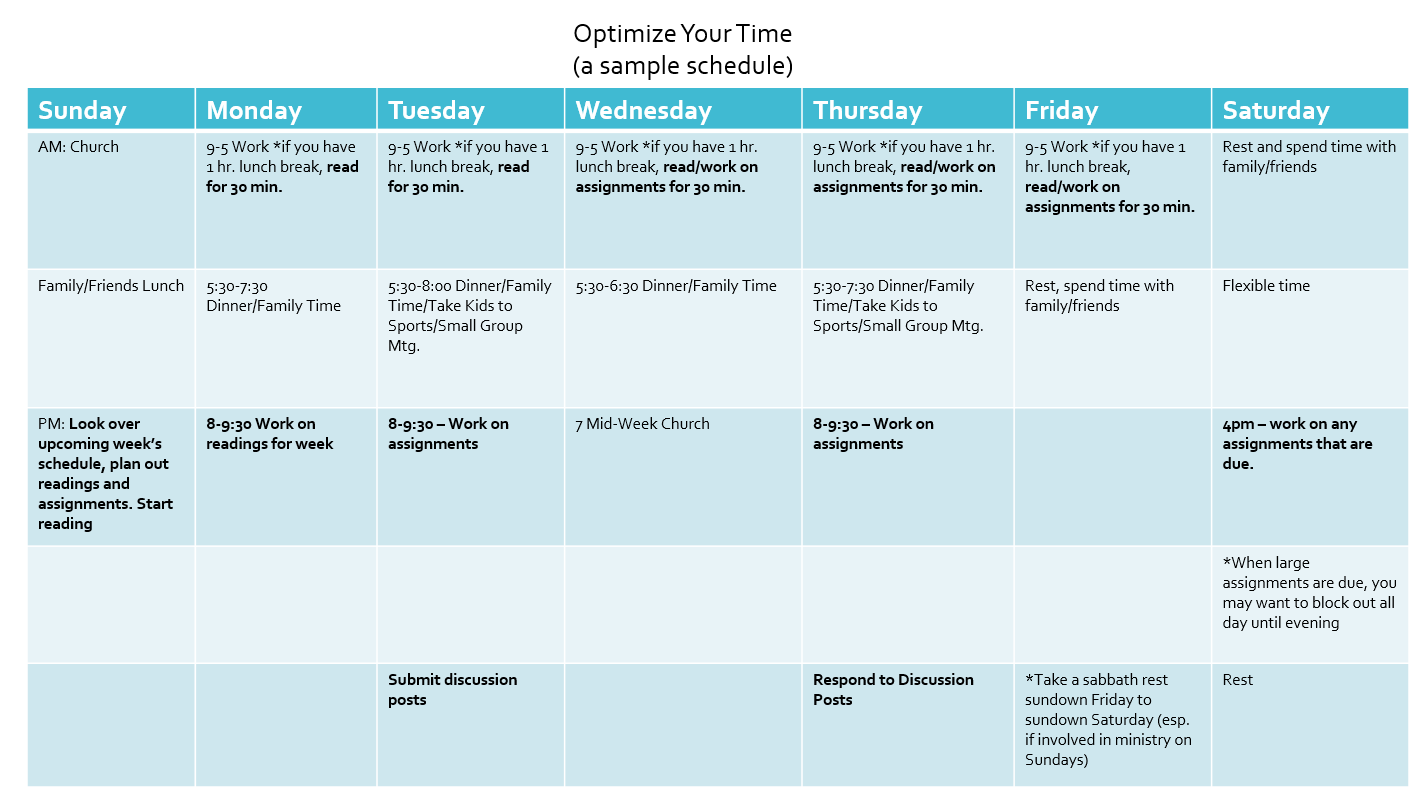Maybe you’ve thought that you’d like to go to college online…but the idea is daunting. Here are some tips to let you know that you can do it!
You will have a dedicated academic advisor to help you with:
- Registration
- Ordering your textbooks
- Time management skills
- Connecting with professors
- …and any question you may have!
Time Management
- Take classes at a pace that works for you. We usually have students start with two classes a semester. Taking one class is also an option. That helps you see what the course load is like and how it fits into your life.
- We always check for transfer credits that can be applied toward your major. This saves you time and money.
- There is no required class time…you can do school on your lunches, in the evening, on weekends, or whenever it works for you. Just be sure to submit assignments by the due date.
- Block out times throughout the week when you know you’ll be able to focus. Add those times to your calendar.
Here is a sample schedule that builds in work, family, friends, ministry, rest, and of course school:

Navigating Online Classes
- Our classes are all set-up very similarly in an easy to navigate platform.
- Your advisor will give you access to a tutorial for that platform.
- You can also ask your advisor and professors any questions you may have about the platform or classes.
Getting Connected
- Our staff and faculty care about you! They will help you with your academics, pray with you, encourage you, and would love to talk with you about your career goals and what steps to take to get there.
- Get to know our faculty here.
- Join our Chapel livestream and watch the archives: UVF Chapel.
- Stay connected with us on social media: UVF Instagram, UVF Facebook, and UVF TikTok.
